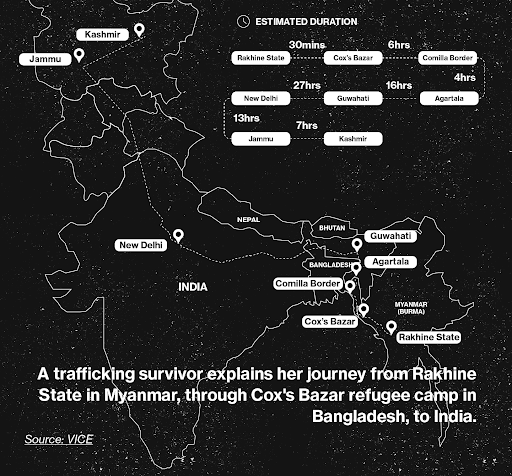
A Rohingya child selling a locally-made bassinet in the market of the Nayapara refugee camp, Cox's Bazar, Bangladesh. Photo: Pari Saikia
Tricked and betrayed
Rohingya Muslims walk past a tent in a makeshift camp in Rakhine state in Myanmar while waiting to find a way to cross over into Bangladesh in November 2017. Photo: Phyo Hein Kyaw / AFP
Life in Kashmir
Rohingya refugees wait to collect relief materials in Kutupalong refugee camp in Ukhia on October 14, 2020. Photo: Munir Uz Zaman / AFP
No end in sight
IMAGE: JORDAN LEE / VICE
Code words: Mishti & Sandesh
Women of no land
In December 2020, Bangladesh began transferring hundreds of Rohingya refugees to Bhashan Char island, with rights groups alleging people were being coerced into leaving. Photo: AFP